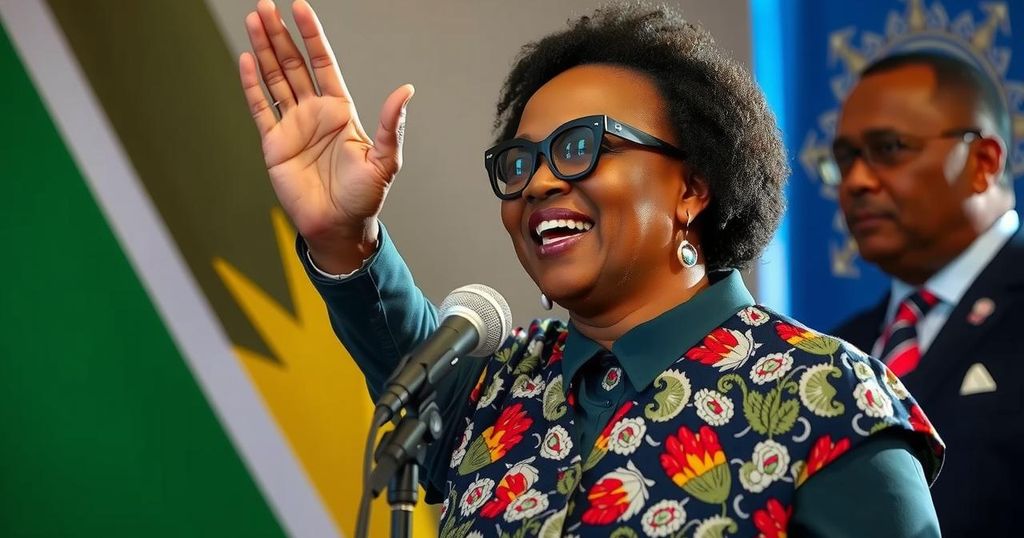Namibia elected its first female president, Netumbo Nandi-Ndaitwah, with 57% of the vote despite electoral irregularities that extended voting. Her party, SWAPO, maintains a slim parliamentary majority. Criticism over the electoral process may pose challenges for her administration as she addresses economic issues and youth concerns.
In a historic election, Namibia has elected its first female leader, Vice President Netumbo Nandi-Ndaitwah, who secured 57% of the votes amid controversies surrounding the election process. The electoral outcome follows a series of technical issues, leading to a three-day extension for voting, which opposition parties deemed unconstitutional. Meanwhile, Nandi-Ndaitwah’s ruling SWAPO party faced challenges, managing to maintain a slim parliamentary majority essential for their long-standing governance since Namibia’s independence from apartheid rule in 1990.
The electoral commission’s handling of the situation has drawn widespread criticism, as many voters reported long waits and difficulties accessing polling stations during the voting period. Nandi-Ndaitwah’s victory is historic as it places her among the rare female leaders in Africa, contributing to the representation of women in political leadership. Her commitment to addressing the socio-economic challenges facing Namibia will be crucial moving forward, especially considering high unemployment and discontent among the youth.
Nandi-Ndaitwah, 72, previously served in various governmental roles since Namibia’s independence, and her election follows the death of former President Hage Geingob. As her party navigates a shifting political landscape in Southern Africa, marked by recent losses for long-dominant parties in places like South Africa and Botswana, she will be under pressure to fulfill the promises made during her campaign, focusing on peace, stability, and youth empowerment. The electoral challenges and allegations of a rigged process raised by opposition leaders could pose significant hurdles as she begins her presidency.
Namibia, a nation that gained independence from apartheid-controlled South Africa in 1990, has historically shown political stability and democratic governance. However, recent elections have exposed significant issues within the electoral process, prompting debates about election integrity and the functioning of democratic institutions. Namibia’s ruling SWAPO party has been in power since independence and has faced criticism regarding governance, economic challenges, and allegations of mismanagement, particularly in light of high unemployment and youth dissatisfaction. Nandi-Ndaitwah’s election reflects an important moment in the country’s political landscape as it confronts these challenges while also making strides toward gender representation in leadership.
In conclusion, Namibia’s election of its first female leader, Netumbo Nandi-Ndaitwah, marks a significant milestone in the country’s political history. However, the electoral irregularities and the strong opposition to the election results signal that her administration will face immediate scrutiny and challenges. The expectation for Nandi-Ndaitwah is to deliver on promises of stability and empowerment, all while navigating the complexities of a parliamentary system under pressure for reforms.
Original Source: www.seattletimes.com






